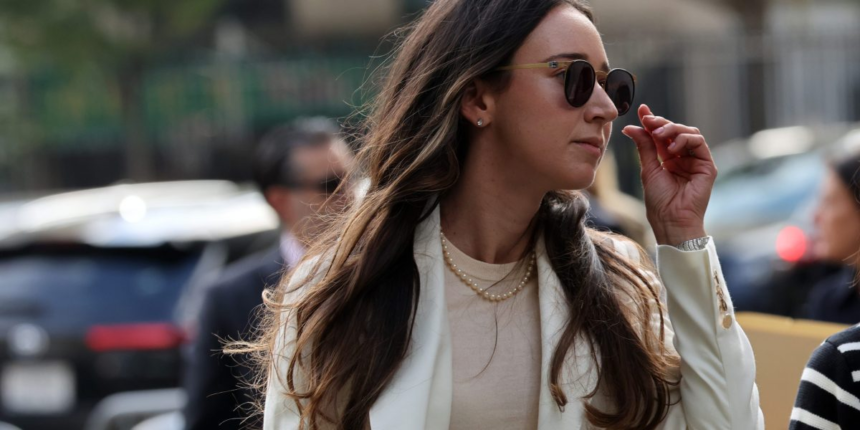The legal bill is the latest fallout for JPMorgan from the disastrous transaction. It also illustrates how expensive high-stakes litigation involving top-flight lawyers can become. There are few litigants besides the nation’s largest bank that could afford to pay such costs.
“Huge, huge number,” said Kevin O’Brien, a former federal prosecutor now working as a white-collar defense lawyer in New York. “She had a lot of high-priced legal talent.”
Quinn Emanuel Urquhart & Sullivan, one of Javice’s law firms, declined to comment. Her other lawyers didn’t respond to requests for comment. Lawyers at Kobre & Kim who defended Amar also didn’t respond to requests for comment. JPMorgan declined to comment.
To put the $115 million figure in perspective, a high-priced lawyer billing $2,000 an hour would have to bill eight hours every day, including weekends and holidays, for nearly 20 years to reach that total.
At trial, 19 lawyers officially appeared for Javice, 16 for Amar, and the two teams pursued different strategies on certain issues. For all the lawyers in court, there would have been even more lawyers, paralegals and support staff back in the office, O’Brien said. It helps if someone else is picking up the bill, he added.
“If you’re a defendant and you’ve got the backing of a board or an insurance company, you want to leave no stone unturned,” said O’Brien. “The sky is the limit.”
JPMorgan tried to avoid paying for Javice and Amar’s defenses. But a Delaware judge ruled in 2023 that the fraud allegations were covered by the Frank merger agreement, which required the bank to advance legal costs for the pair. Javice and Amar both became JPMorgan executives after the deal closed but were fired after the fraud was discovered.
JPMorgan can try to reclaim the money from her, and US District Judge Alvin Hellerstein included the legal costs in the $287.5 million restitution order that accompanied her prison sentence. Javice’s lawyers asked the judge on Monday to reconsider his order, contending that JPMorgan wasn’t entitled to recover defense legal costs.
Even if the order remains unchanged, the bank is unlikely to get back more than a small fraction of the total amount. Javice is only required to pay 10% of her income toward the order after she leaves prison, and it expires in 20 years.
Both defendants tried to focus jurors on what they claimed was JPMorgan’s hurried and flawed due diligence in the deal. In determining her sentence, the judge said he was considering her “conduct, not JPMorgan’s stupidity.” Amar also unsuccessfully tried to distance himself from Javice, saying she deceived him along with JPMorgan.









